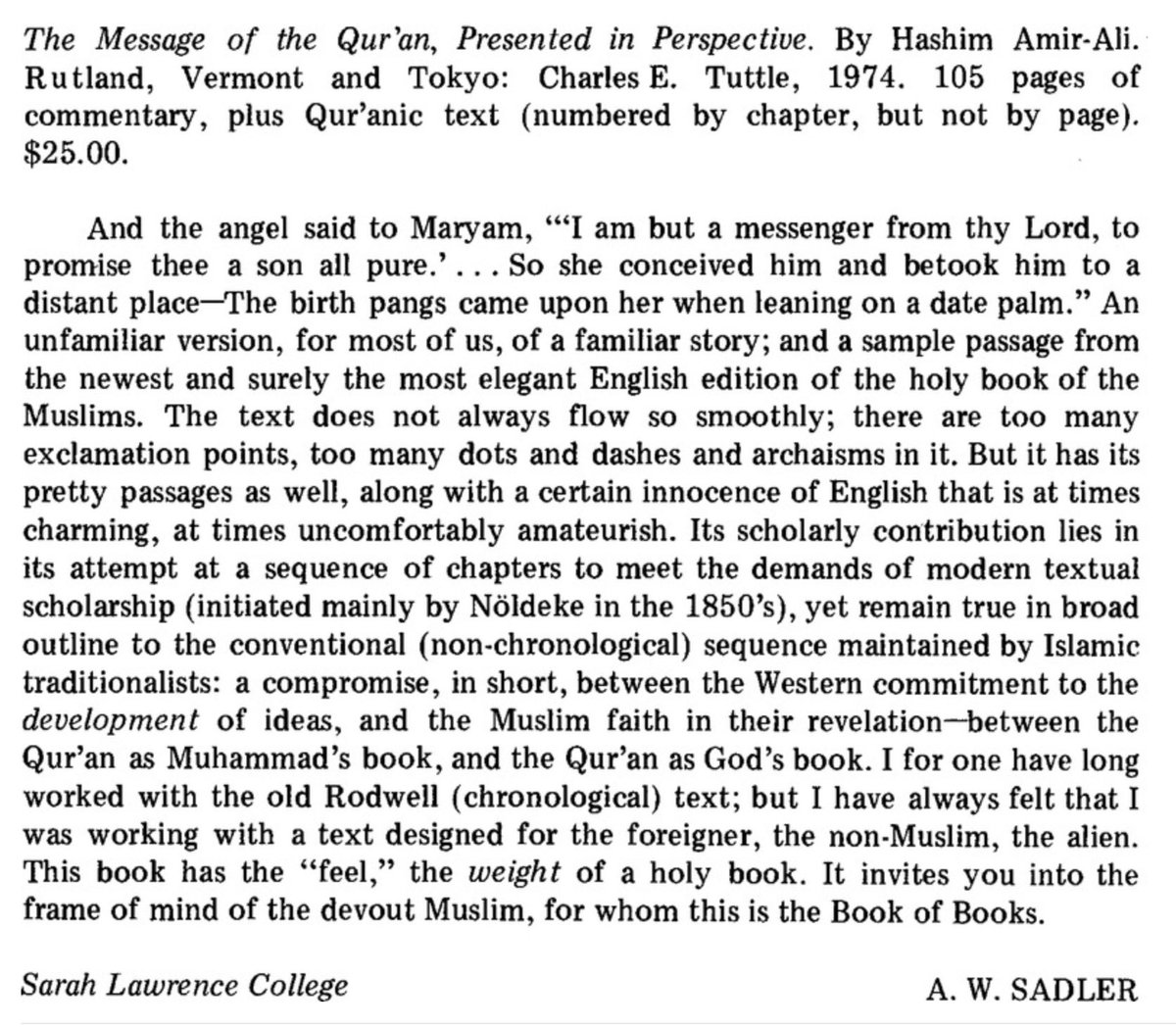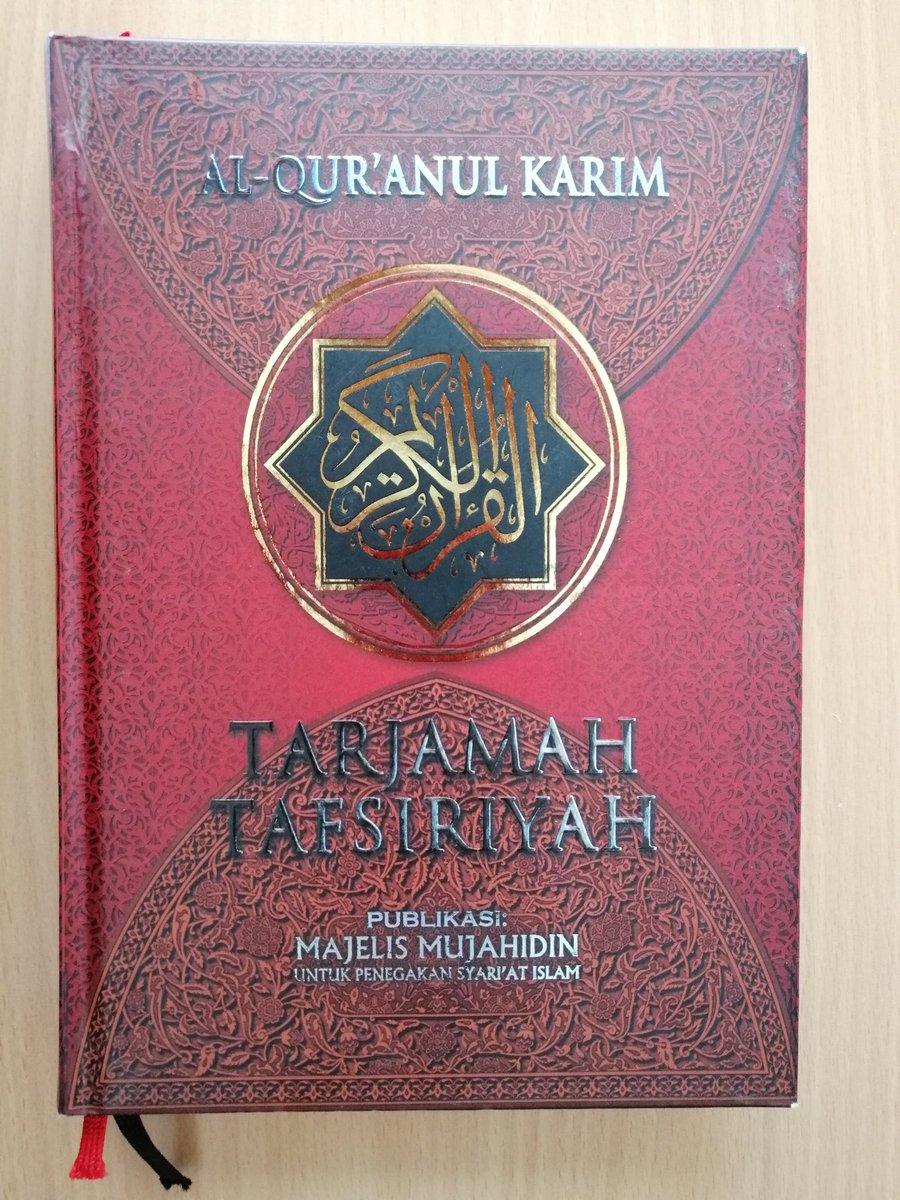
The Qur’an famously has a recited/compiled order which differs from the order of its revelation/proclamation. Some non-Muslims translators have ‘restored’ chronology. But how about Muslims?
#qurantranslationoftheweek 🌏🇮🇳
#qurantranslationoftheweek 🌏🇮🇳

Muslim scholars have always treated revelatory order as significant, as observed in tafsīr and subgenres of naskh and asbāb al-nuzūl. However, the challenge of constructing a detailed account has met with limited attempts in traditional scholarship.
Peter G. Riddell notes in ‘Reading the Qur’an Chronologically’ the influence of Theodor Nöldeke’s list published in 1860, which built on the work of his German orientalist predecessor Gustav Weil. Both made use of Muslim works on the subject.
brill.com/view/book/edco…
brill.com/view/book/edco…
The idea of rearranging the surahs for tafsir study has not been popular, but was applied by M. ‘Izzat Darwaza 🇵🇸 in ‘Al-Tafsir al-Hadith’ (1962); and to Meccan suras by ‘Abd al-Rahman Hasan al-Maydani 🇸🇾 in ‘Ma’arij al-Tafakkur’ (2000).
https://twitter.com/tafsirdoctor/status/1214886594118897669?s=21
In terms of translations, J.M. Rodwell’s (1861) was arranged in a surah order mostly agreeing with Nöldeke’s. This was undone by Alan Jones in a 2001 edition (see images)! Richard Bell (1937) and N.J. Dawood (1956) also presented their translations chronologically. 



It’s less known that at least 2 Muslims produced chronological translations. Bruce Lawrence shares this brief mention on Mirza Abul Fazl and later classes him among “zealous laymen innocent of scholarly background”. 

However, the chronology feature of his 1910 work goes unmentioned. Hailing from East Bengal (now Bangladesh), Abul Fazl was versed in Arabic but more specialised in Sanskrit, in which he earned a PhD from Berlin.
In the late 1930s, he settled in Hyderabad, India, where Hashim Amir-Ali, who was later to publish ‘The Message of the Qur’an: Presented in Perspective’ (described calligraphy here as “tafsir nuzuli”), came under his tutelage for many years. 

Hashim Amir-Ali (1903-1987) studied in Hyderabad and Bombay, then Chicago and Cornell, where he took a PhD in Rural Sociology. He wrote ‘The Student’s Qur’an’ before his translation ‘The Message of the Qur’an’, which he intended to follow with a more detailed volume.
Even if Lawrence’s description of Abul Fazl as unscholarly is overstated, here is Amir-Ali’s fascinating self-description as a traumatised layman who relied heavily on previous English translations: 

Amir-Ali’s publication has some special aesthetic features. This charming short review notes the “feel” of this edition of the Holy Book, something that can only be appreciated partially from the digital scan!
archive.org/details/messag…
archive.org/details/messag…

The Qur’an has been divided here into 5 chronological “Books”: each is heralded by a red page adorned with a calligraphic door from the Taj Mahal! 



There are other aesthetic touches as well as occasional footnoted reflections, and reproductions of earlier translations. 



Apart from the main text, Amir-Ali has placed pedagogical material (putting the scripture into “Perspective” as the title promises) in the “postscripts/interludes” between the 5 “Books”. All this adds to the reader’s experience with the volume.
#qurantranslationoftheweek 🌏
~SS~
#qurantranslationoftheweek 🌏
~SS~
• • •
Missing some Tweet in this thread? You can try to
force a refresh








